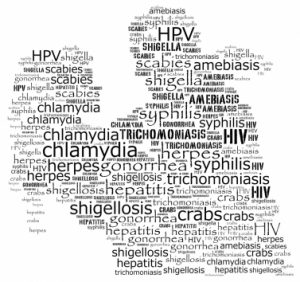ABCs Of Sexually Transmitted Diseases (STD)
 When it comes to sexually transmitted infections (STIs), home STD testing and screening are essential. The tests involve searching for the bacterium within the cells of the urinary mucosa. Due to the insidious nature of some infections, it is recommended that sexually active young adults carry out two screenings a year.
When it comes to sexually transmitted infections (STIs), home STD testing and screening are essential. The tests involve searching for the bacterium within the cells of the urinary mucosa. Due to the insidious nature of some infections, it is recommended that sexually active young adults carry out two screenings a year.
The pelvic inflammatory disease (PID) is associated with a wide variety of symptoms. Women often complain about a combination of two or more of the following:
– Pain in the lower abdomen that changes for a few days, the location of which is not always easy to identify
– Vaginal discharge, which varies in appearance and characterized by a smell of mucus
– Menstrual bleeding outside the scheduled period of menstruation
– Pain while urinating or due to bowel movements
– Experiencing fever or chills
– Complications may affect areas other than the urogenital zones
The intensity of each of these signs is extremely variable from one woman to another, but the combination of only two of them should point to the pelvic inflammatory syndrome (PID), which can be triggered by Chlamydia and gonorrhea as the primary culprits. Any suspicion of PID should prompt consultation or home STI tests. This is aimed at not only to getting rid of the infection, but also to avoid spreading it to partners and preserving one’s fertility.
All previous partners in the months preceding the appearance of the first signs must be contacted and urged to consult their physicians or buy an STD tests kits online. The occurrence of a PID is common in the three weeks following the insertion of an intrauterine device (IUD). Most often, this is indicative of a chlamydiosis. It is therefore essential to consult the doctor quickly rather than to think that these symptoms are due to the presence of the intrauterine device.
For any woman who has ever had a sexually transmitted infection, only one of the above-listed signs, even in a minor mode should be screened for Chlamydia before an IUD is inserted.
Progressive failure of antibiotics
The immune system is often not very effective against this type of infection. B lymphocytes fail to hunt for Chlamydia, which lives inside cells where circulating antibodies do not reach them. Thus, the body partially eliminates the bacterium, and, on the other hand, immunity after an infection lasts hardly more than six months. An infection, which has disappeared, can be re-emerged months or years later and the individual will not be immune to these new attacks.
For a long time, medication managed to contain the progression of this infection with antibiotics (most often azithromycin and doxycycline), but this bacterium was able to adapt to the drug response.
There are no comments